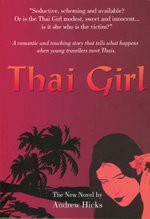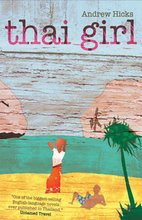
The oldest house in our soi, about fifty years, from times when elephants roamed.

A view of our soi.

Most families socialise in these small shelters in front of the house.

The newest house in the soi, about two years old.
PHOTOS POSTED FROM AN INTERNET CAFE IN SANGKHA.
THANK YOU TOT FOR YOUR USELESS INTERNET CONNECTION!
I remember when Cat and I first moved here Tamsyn, in one of her emails from England, asked me if the village was very remote.
Remote?
Of course it’s not remote. It’s near Sangkha which is the centre of the known world.
Well, okay, I suppose it’s relatively remote, depending on what theory of relativity you ascribe to.
In fact it’s probably the most remote place I’ve ever lived in, though Zaria in Nigeria where I worked in the early seventies was more cut off from the world. There were no phones that actually functioned and the fastest means of international communication was by things called 'telegrams'. An incoming telegram from the UK usually took about three months to arrive; there was instant transmission to Lagos but then it was handed to a cripple with a cleft stick.
Things have moved on since then and our village in Surin in the North East of Thailand is not so bad as the basic infrastructure of roads and so on is remarkably good. Unfortunately there are no phone lines, even though the cables run down the main road only a few hundred yards away… at least they did until they were stolen some while back.
The village has a hundred and twenty three houses and about 2,000 people registered as living here, though many work far away in the urban centres. It’s on the fast road to Sikoraphum and there are a few expats who live in places that are much more remote. We’ve visited one or two who live off the beaten track down unsealed roads for whom a trip into town takes a lot longer. It doesn’t make much difference though. They too can pay for a big TOT IP Star satellite dish for over-pried internet that doesn’t work. They too could order a Bangkok Post that’s rarely there when you go into the mini-mart to collect it, so we’re all in pretty much the same boat.
The reality is that each little pond is its own universe around which lives revolve and remoteness is not much of an issue. Most of the young go away to find work but long to gravitate home again. You only accept exile to the city if you have to.
As I sit outside in the new shop across the soi enjoying a beer, all our neighbours pass by. Old granny from next door, looking ferocious as always, old balaclava uncle on his ancient bicycle and later his wife and a lad on a bike far too small for him. Children are coming home from school, a farmer on a motorbike, mothers carrying babies. They all wander in and buy a tiny sweet, a snack, some soap, a tot of rice whisky.
Everyone round here has known each other all their lives and they’re all related somehow. It’s a real community, cohesive and strong with its colourful Buddhist temple and cosy little school. It’s a world of its own, complete and secure, so how could it ever be remote. Remote from what?
It’s Bangkok that’s remote, that’s alien and dangerous, remote from the place you were born in, where you’re meant to be. The things that happen so far away in Bangkok hardly seem to impact upon us here. Bangkok’s truly remote from Ban Sawai.
On my last trip to Bangkok, I brought a pound of cheese back with me. It was a great luxury but now it’s all finished. It’ll take me nine hours to go and get some more, though you can buy massive bricks of Cheddar at Makro in Surin in two kilo packs. No, I’ve decided to respect my arteries and eat flaming chilli and fermented fish instead.
And for the last few days my Bangkok Post has actually arrived at the shop so I’ve some idea of the many things that are happening here in Thailand. It’s still turmoil in the capital, though the ripples do not seem to spread as far as us.
As I scan the headlines, I see that ousted former prime minister, Thaksin Shinawatra has fled to London with his wife to escape a raft of serious corruption charges. He has assigned a legal team to file a libel suit as he says the police were going too far in publicizing the arrest warrants issued against him, a step intended primarily to humiliate him. Still in cloud cuckoo land, he is now applying for asylum in England where presumably he’ll argue that he’s being unfairly persecuted... politicians should be allowed to get away with corruption, as they always did when he was in power.
The Electoral Commission is busy considering a motion for the dissolution of the ruling Peoples Power Party for various electoral infringements. It is reported that their meeting was adjourned and a decision delayed for two weeks to allow the investigation department on the fourteenth floor to photocopy a key document and deliver it to the Commission’s offices on the nineteenth floor.
Meanwhile Prime Minister Samak himself is under investigation and could be disqualified for violating the constitution by continuing to host his long standing cooking programme on television called ‘Tasting and Grumbling’. The PM, a former governor of Bangkok, is larger than life, a popular tele chef and didn’t want to give up stirring and frying just because he had a country to run.
The beggars' licensing bill is under final consideration and eight students have been caned with up to eighteen strokes for protesting at the plan to demolish their school to make way for a new parliament building.
The possibility of an exceptional storm surge overwhelming coastal defences south of Bangkok has been raised by the chief of the National Disaster Warning Centre. It is reported that 499 Buddhist, Christian and Hindu priests and a Buddha statue will take part in a ritual to keep the province’s coastline safe from this risk. It is reassuring that such action is being taken in the face of such a significant danger.
However, the chief of the Centre has accused some senior politicians of trying to silence his prediction of a storm surge. Some landlords had also phoned him berating him that he had ruined real estates development and their businesses. He has a certain authority as his prediction some years ago that a tsunami might hit Phuket was carefully supressed. The tourists wouldn’t have liked it, now would they!
A couple of days ago the unofficial opposition, the Peoples’ Alliance for Democracy, announced a continuation of its massive protests against the government. Predicting 300,000 protesters on Bangkok’s streets, their strategy is ‘to paralyse the administration and the country.’ They plan to seize Government House and all the ministries, disrupt airports and block roads. “People have started to panic,” said the Prime Minister.
Whether the world caved in yesterday, I don’t yet know as I haven’t got the paper yet.
There are quite a few more interesting stories too. A Thai weight lifter has recovered from critical injury and won a gold at the Olympics. Her bid for gold was boosted when she changed her name as a nun suggested her old name could block her road to the top.
The Bangkok Post for 26 August has yet more stories, including that of a major strike at Body Fashion Thailand’s factory. Two thousand employees stopped work to protest the sacking of a labour union leader. She was sacked because, on a TV talk show, she wore a tee shirt claiming the right not to stand when the royal anthem is played in cinemas.
A provincial airport is being sued because there was no security screening when the complainant checked in. The scanners had been borrowed by a local university for security at its graduation day.
A former chief of the TT&T telephone company and four others has been charged with stealing fiber optic and copper cables. With a six wheeled truck and safety cones, they posed as repairmen and if challenged when hauling away quantities of cable they'd produce company documentation to prove their bona fides. Poorly paid and in debt to loan sharks, the chief had resigned his job as there was more money to be made harvesting cables than laying them.
Did he get as far as us or is this a national hobby?
Finally a Thai university has developed a new method of treating depression and phobias using elephants. ‘Autistic children will be matched with elephants based on their personalities. For example, hyperactive children will be paired with calm elephants, while introverted children will be matched with enthusiastic elephants.’ It sounds like a jolly good idea.
But that’s just in the newspapers.
Meanwhile, here on another planet, I hear the storm clouds rumbling darkly a few kilometers away and it’s painfully hot hitting the keys on my verandah upstairs. I long for the rain to come and cool things off a bit but the blackness seems to be receding and it’s sultry and still with not a hint of a breeze.
If I’m going to post this blog today, I’ll have to find the key to our gate and drive into Sangkha to the internet café, which may or may not be open. I’d rather stay here and watch television, if I had one I could understand. Or I could finish the painting I started in the kitchen yesterday, or mow the grass… if the mower worked.
Or I could ruminate a bit more upon the relativity of remoteness.
Trouble is my brain’s soggy and I have a rare craving for an ice cold beer. There were several bottles left from the party on Friday night but, dammit, they’ve disappeared. I should have put them in my bedroom cupboard under lock and key to make sure they didn’t walk.
Yes, an ice cold beer.
Really, really cold! In a glass that’s been put in the ice box… with condensation streaming down its sides and making a pool on the table. With salted cashews and almonds.
And some real Cheddar cheese! On a decent plate that’s not bendy plastic, eaten with butter and Ritz biscuits.
But no, forget all that. It’s just idle fantasy!

















